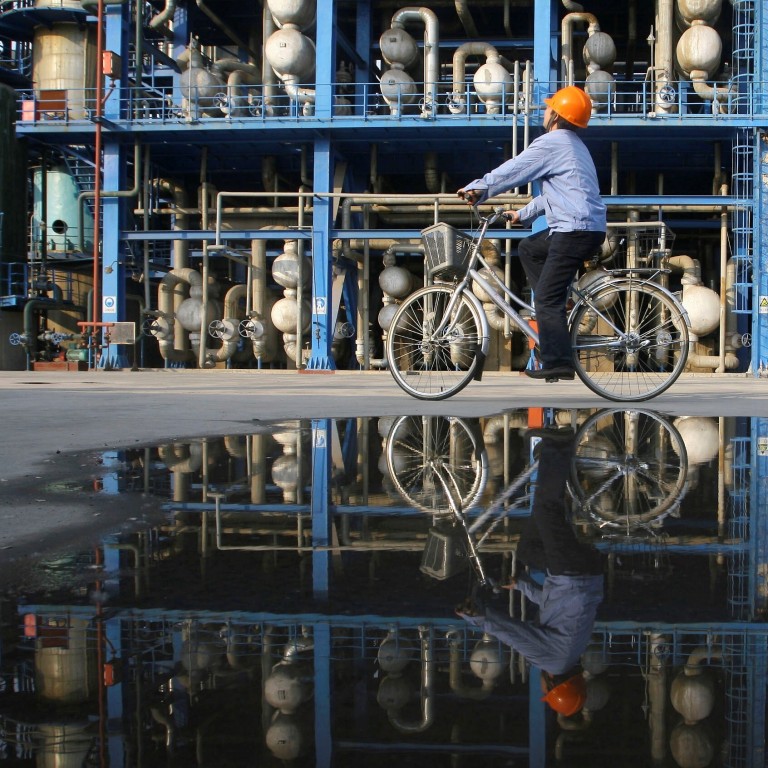
China’s state-owned giants given new order: create global industrial champions
- Head of central government agency in charge of supervising China’s state-owned assets calls on biggest state firms to lead the charge in creating world-beating companies
- While Beijing has downplayed its ‘Made in China 2025’ industrial plan since the start of the trade war with the United States, the initiative’s spirit lives on
In the midst of its escalating economic conflict with the US, China’s largest state-owned enterprises have been given a new directive: work with small and medium-sized firms to build new global champions.
In an interview with the state-run Xinhua news agency published on Monday, Hao Peng, chairman and Communist Party secretary of the State-owned Assets Supervision and Administration Commission (SASAC), said state firms, particularly those owned by the central government, should team up with smaller firms to build up supply chains and form industrial clusters in sectors where China has a leading edge. The commission supervises the central government’s state-owned assets.
“Whether they are state-owned or private firms, they are all Chinese companies,” Hao said. “The SASAC will firmly promote the integration of upstream and downstream enterprises with all types of ownership; and the integration of large, medium-sized and small firms; as well as coordinate the development of various market entities to jointly build a number of world-class enterprises.”
It is the inescapable responsibility of central government enterprises … to jointly create a good industrial and economic environment
More responsibility has also been given to the SASAC, a ministerial level organisation under the State Council, China’s government cabinet. The commission’s main job is to manage the 97 state firms owned by the central government, which had assets worth more than 80 trillion yuan (US$11.5 trillion) as of the end of 2018, according to the latest data available.
“It is the inescapable responsibility of central government enterprises to take the initiative to build industrial chains and supply chains with enterprises of all types of ownership, and to jointly create a good industrial and economic environment,” Hao said.
Included in this week’s Fortune Global 500 list of the world’s largest companies were 124 Chinese firms, including those from Hong Kong, surpassing the 121 companies from the US. Among the listed Chinese firms, more than half were state-owned firms, including oil giants Sinopec Group and China National Petroleum, as well as the national electric utility monopoly State Grid – all three of which were included in the top five.
Hao said that, in the first half of this year, collaborative investment between the central government’s state-owned enterprises and the private sector totalled 110 billion yuan (US$15.82 billion) via various channels, including purchasing corporate shares and establishing new joint ventures, as well as through mergers and acquisitions. Hao also said that central state-owned firms planned to work with all types of companies “on a larger scale, and at a deeper level”.

